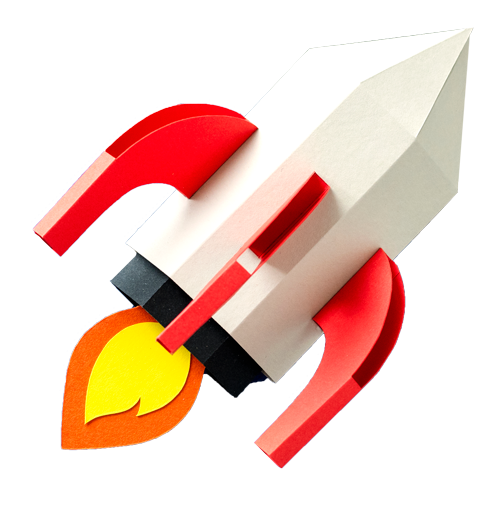2023 has been a whirlwind year for artificial intelligence. The lines between science fiction and reality continue to blur as innovations emerge that reshape industries, push ethical boundaries, and redefine our relationship with technology. From mind-bending breakthroughs in language processing to the democratization of AI accessibility, let's delve into the top three AI developments of 2023 that have marked this extraordinary year in the AI landscape:
1. The Rise of Foundation Models: Democratizing AI for Everyone
The year 2023 witnessed the rise of foundation models, aptly named for their potential to become the cornerstone of future AI endeavors. These are large language models (LLMs) trained on massive datasets of text and code, enabling them to perform a wide range of tasks with breathtaking fluency and versatility. Think of them as swiss army knives of AI, capable of generating human-quality text, translating languages, writing different kinds of creative content, and even generating basic code.
Two such models, BARD and GPT-3, have taken the world by storm. BARD, developed by Google AI, boasts exceptional factual accuracy and comprehensive knowledge, rendering it an ideal research assistant and information synthesizer. GPT-3, on the other hand, shines in the realm of creativity, crafting poems, scripts, musical pieces, and code with an artistry that rivals human imagination.
The arrival of foundation models marks a significant shift in the accessibility of AI. No longer confined to the labs of tech giants, these models are being democratized through open-source initiatives and developer communities. This democratization paves the way for a future where anyone, from aspiring artists to budding entrepreneurs, can leverage the power of AI to bring their ideas to life.
Key resources:
- Google AI Blog: Introducing BARD: A Large Language Model for Reasoning, Argumentation, and Creative Text Generation
- OpenAI Blog: Announcing GPT-3.5: Scaling Up Language Models with Few-Shot Learning
2. AI Embraces the Real World: Embodied Intelligence Takes Center Stage
While LLMs have dominated the headlines, another fascinating strand of AI is quietly pushing the boundaries: embodied intelligence. This branch focuses on equipping AI agents with the ability to interact with the physical world through robots and other physical interfaces. Imagine intelligent machines capable of not just understanding the world around them but also manipulating objects, navigating complex environments, and even performing delicate tasks like surgery.
One such development that captured hearts and headlines is the LaMDA chatbot acquiring a robotic body. This seemingly innocuous feat marks a giant leap for AI, signifying the transition from disembodied language processing to real-world interaction. Imagine the possibilities: AI-powered robots assisting in disaster relief, performing intricate manufacturing tasks, or even providing companionship to the elderly.
The challenges in embodied intelligence are immense, from sensor fusion and motor control to the ethical considerations of AI operating in the real world. However, the year 2023 has witnessed significant strides in these areas, with researchers developing advanced algorithms and robots capable of increasingly complex physical interactions.
Key resources:
- Google AI Blog: LaMDA Moves Out of the Cloud and Into the Real World
- MIT Technology Review: The Ethics of Artificial Intelligence in the Real World
- IEEE Spectrum: The 8 Biggest Challenges in Embodied AI
3. AI Ethics Takes Center Stage: Time to Navigate the Moral Maze
As AI's capabilities accelerate, the need for robust ethical frameworks becomes paramount. 2023 saw a heightened focus on AI ethics, with discussions surrounding bias, transparency, and accountability dominating conferences and research papers.
One specific concern that garnered significant attention is the issue of deepfakes and disinformation. The ability of AI to manipulate audio and video with alarming realism raises serious concerns about fake news, political manipulation, and the erosion of trust in information sources. This year, several initiatives emerged to combat deepfakes, from AI-powered detection tools to educational campaigns that promote media literacy.
Beyond deepfakes, the broader question of algorithmic bias continues to haunt the AI landscape. How do we ensure that AI algorithms don't perpetuate existing social inequalities and prejudices? 2023 saw increased calls for transparency in algorithm development and the inclusion of diverse perspectives in the design and implementation of AI systems.
Addressing AI ethics is not a technical problem alone; it requires a concerted effort from researchers, policymakers, and the public alike. As we move forward in this age of intelligent machines, it's crucial to ensure that AI is developed and deployed in a responsible and ethical manner, one that benefits all of humanity.
Key resources:
- The Stanford Encyclopedia of Philosophy: Artificial Intelligence Ethics
- The Partnership on AI: Bias Mitigation Best Practices
- Future of Life Institute: Deepfakes Report
Conclusion:
2023 has been a pivotal year for AI, with advancements that spark both excitement and trepidation. The rise of foundation models democratizes AI, granting everyone access to its creative and informative potential. Embodied intelligence allows AI to step into the physical world, raising both promising possibilities and ethical questions about its interactions. Finally, the intensified focus on AI ethics reminds us that the future of intelligent machines depends on building them responsibly, ensuring they benefit all of humanity with fairness, transparency, and a commitment to good.
As we head into the future, one thing is certain: AI is no longer a distant fantasy. It is woven into the fabric of our lives, shaping our work, our interactions, and even our understanding of ourselves. The responsibility lies with us – researchers, developers, policymakers, and users alike – to guide AI on a path that benefits all, where ethics and ingenuity work in tandem to create a brighter future for everyone.
Let 2023 be a springboard, not a finish line. Let's continue to push the boundaries of AI, while simultaneously ensuring its development is mindful, responsible, and focused on the ultimate goal: building a world where humans and AI thrive together.
What do you think?
Leave your thoughts on the evolution of AI in 2023 in the comments below or shoot me a message directly.





